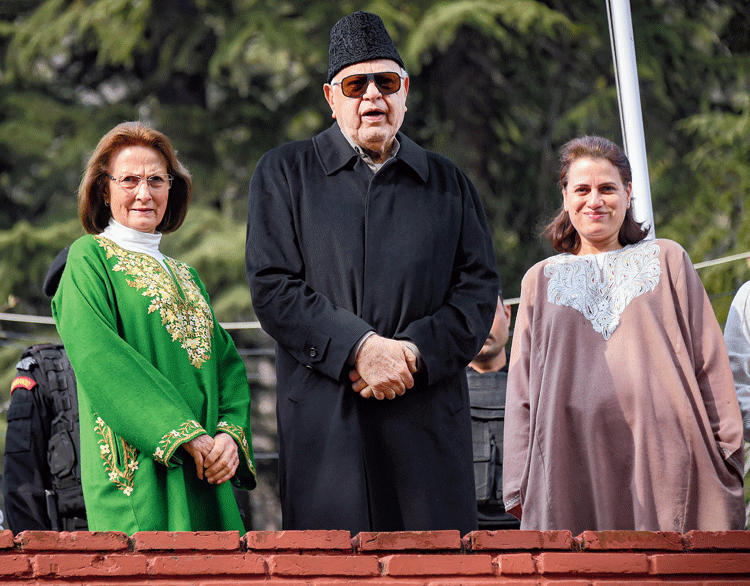Three-time chief minister Farooq Abdullah is a free man today, after seven months in captivity, but not free enough to speak his mind.
The Jammu and Kashmir government on Friday revoked Farooq’s detention under the Public Safety Act, releasing him from imprisonment at his Gupkar home-turned-jail.
“Thank god this gate (of his house) is open. For so many months I wished to see this gate open. Today, I don’t have words, the way I feel today. I am free, I am free,” said Farooq, 83, speaking from the terrace of his home.
“I hope my people will be free, the people of this state will be free. Let us pray to God that we will see true freedom for which we have been trying for a long time.”
The National Conference president said his freedom would be incomplete until all the others, including his son Omar Abdullah and PDP leader Mehbooba Mufti, were released.
Farooq, MP from Srinagar, said he would “not speak on political matters until everyone else is released”.
“It is only when they are released (that) I will be able to tell you on political matters,” he said.
He did not utter a word against the Centre’s decision to scrap Jammu and Kashmir’s special status and split the state into two Union territories or the subsequent clampdown that battered lives.
It was not clear whether Farooq was forced to sign a bond of silence like several other politicians.
Farooq was detained on August 5, the day the state’s special status was scrapped. The Centre initially denied his arrest, with home minister Amit Shah telling Parliament that he was a free man. In September, he was charged under the stringent PSA, which allows detention without trial for three to six months, a period that can be extended. His detention was extended by three months and today was its last day.
This is the first time that the PSA, used against militants, was used against a mainstream politician – one who has even served as Union minister. Omar, Mehbooba and several other politicians were also booked under PSA later.
On Friday, Farooq was flanked by his wife Mollie and daughter Safia when he spoke to the media.
“My father is a free man again,” tweeted his daughter Safia Abdullah Khan.
The release came days after eight Opposition parties sent a joint resolution to the BJP-led government, demanding the immediate release of all political detainees in Kashmir.
“Democratic dissent is being muzzled by coercive administrative action, which has threatened the basic ideals of Justice, Liberty, Equality and Fraternity as enshrined in our Constitution,” the resolution read.
On Friday, Farooq said: “I am grateful to parliamentary members who spoke for my freedom in parliament. I spoke to everyone. I hope one of these days I will be able to go to parliament in Delhi and speak for you and people of the state.”
He sounded reconciliatory as he referred to India as “country,” saying he thanked the leaders and people “in the rest of the country” for speaking for Kashmir.
In the run-up to the August decisions, Farooq had warned of an uprising and said that if the state’s special status was temporary, then its accession with India too was temporary.











